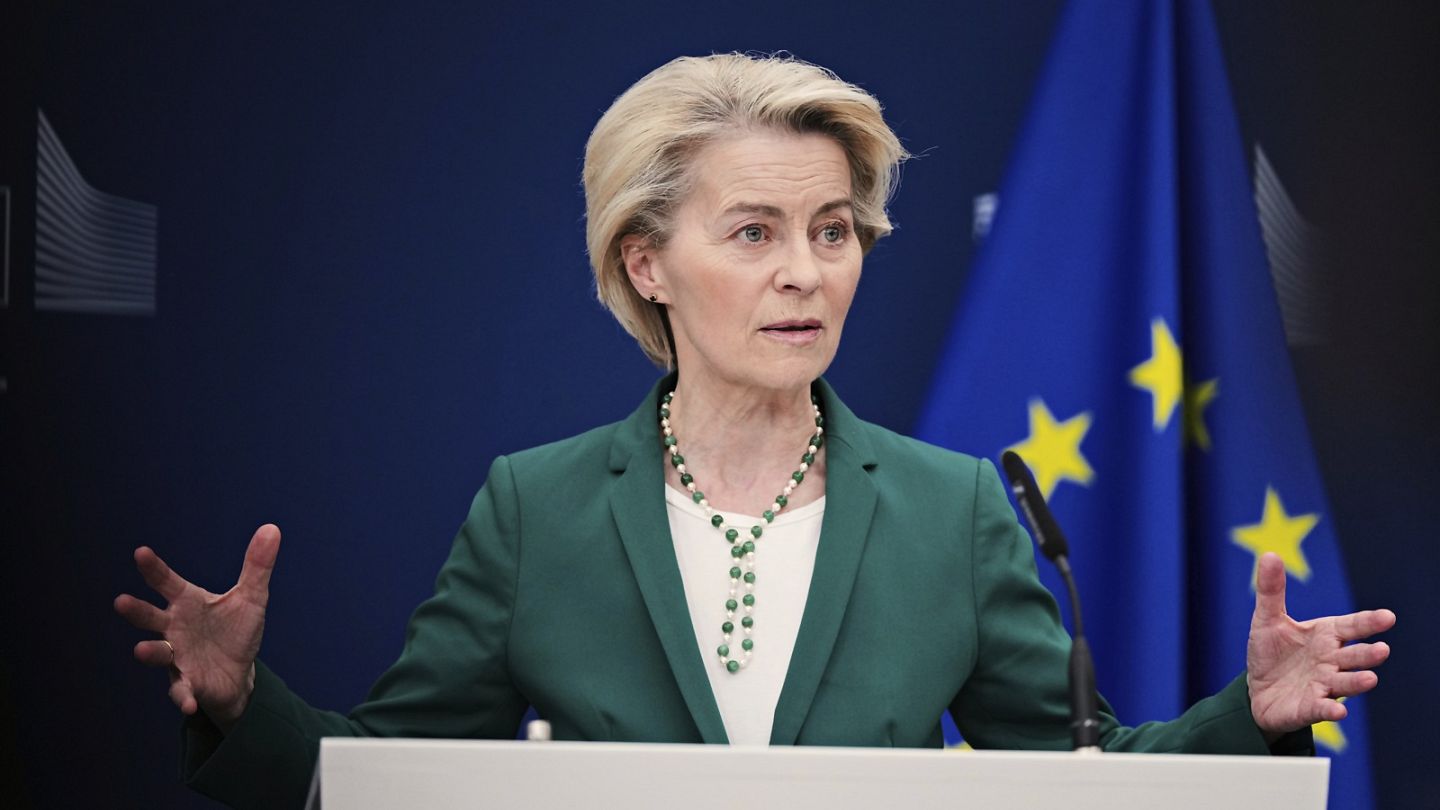Von der Leyen proposed a 'zero tariff' agreement on all industrial goods to Trump.
Ursula von der Leyen stated that "Europe is always ready for a good deal" as trade tensions with the US reach an all-time high.
European Commission President Ursula von der Leyen announced that they have proposed the mutual elimination of tariffs on all industrial goods as part of trade negotiations with the US. Leyen emphasized the intention to retaliate against Donald Trump's policies if the talks fail. Trump announced on April 9 that he would impose a 20% tariff on imports from the European Union, with steel, aluminum, and cars subject to a separate 25% rate. A total of over 380 billion euros worth of EU-made products will be affected. Pharmaceuticals, copper, timber, semiconductors, and energy products are exempt from this. In a statement made on Monday afternoon, President Leyen said, "We are ready to negotiate with the US. Indeed, as we have successfully done with many of our other trade partners, we have proposed a zero-for-zero tariff for industrial goods." "Because Europe is always ready for a good deal. Therefore, we are keeping this on the table. However, we are also ready to respond with countermeasures and defend our interests." Von der Leyen noted that the "zero-for-zero" agreement had been offered "repeatedly" in the past for the automotive sector, but that "sufficient feedback" had not been received from Washington. A spokesperson stated that the Commission has recently expanded this offer to cover all industrial products as negotiations intensify, but no further details were provided. "We prefer a negotiated solution," said von der Leyen, warning that her administration would use "all cards," including a countermeasure tool introduced in 2023 that has never been implemented, "if necessary" to respond. Von der Leyen characterized Trump's comprehensive tariffs as a "significant turning point for the US" that would impose "enormous costs" on American consumers and businesses and deliver a "major" blow to the global economy. While Washington described the tariffs as "reciprocal," Brussels evaluated this logic as "neither credible nor justified." In addition to the risk of wiping billions of dollars off trade flows between the EU and the US, the European Commission is also concerned about the potential consequences of Trump's decision on international trade, particularly in Asia. Asian countries are affected by higher tariff rates compared to the EU: 24% for Malaysia, 26% for India, 32% for Indonesia, 36% for Thailand, 46% for Vietnam, 48% for Laos, and 49% for Cambodia. For China, an additional "reciprocal" tariff of 34% was applied on top of the previous 20%, reaching a total of 54%. Beijing has already responded by imposing an additional 34% tariff on all American goods. These rates are so high that Brussels fears that Asian countries, whose economies are export-driven, will be kept out of the American market and redirect their products to Europe as an alternative. China, which is already under intense scrutiny for flooding the West with low-cost, heavily subsidized goods, is particularly concerning. In her speech on Monday, von der Leyen announced the establishment of a new "task force" to closely monitor changes in global trade. "We will also protect ourselves against indirect effects through trade diversion. To this end, we will establish an 'Import Surveillance Task Force.'" "We will look at what our historical imports have been and whether there is a specific increase that requires us to act suddenly on a particular product or in a specific sector."


